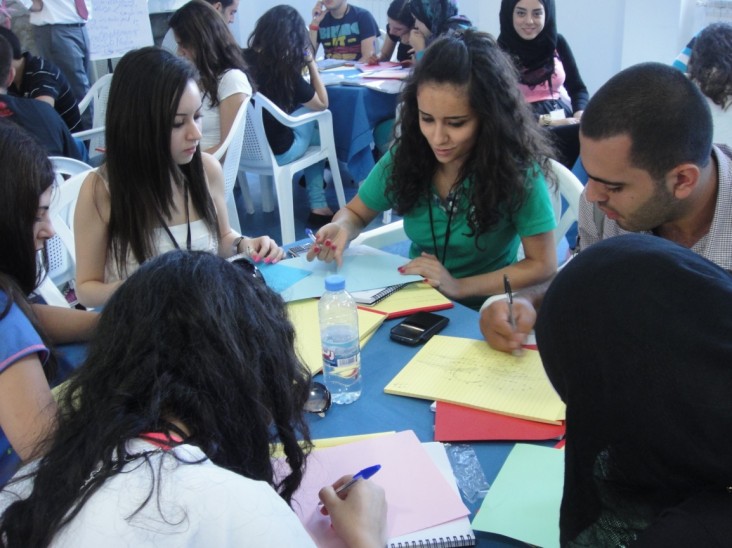Speeches Shim

Today, USAID is committed to a sovereign, stable, independent and prosperous Lebanon at peace with its neighbors. Our support provides quality and reliable services to Lebanon’s citizens in the sectors of education, water and sanitation and governance. USAID aims to enhance economic opportunity, protect the environment and stabilize poor and underserved areas in Lebanon. USAID also supports Lebanon’s efforts to address the spillover effects of the Syria crisis.
OUR WORK
USAID is engaging with new partners to respond to the needs expressed by citizens and to strengthen their capacity to drive and sustain their own development drawing on the experience and long history in Lebanon, where the United States began providing foreign assistance in 1951.
INVESTING IN PEOPLE
USAID increases access to education, improves learning environments and advances student achievement, working in partnership with local counterparts and communities. USAID is working to strengthen the quality of Lebanon’s public schools by upgrading buildings, providing material resources, promoting community engagement in schools, and training teachers through the Developing Rehabilitation Assistance to Schools and Teacher Improvement Program. This program is rehabilitating 183 public schools around the country since 2011, representing nearly a third of all Lebanese public schools owned by the Ministry of Education or local municipalities. USAID’s higher education scholarship program provides full, four-year scholarships to 218 Lebanese public school graduates from around the country to study at high-quality Lebanese universities. Scholarship recipients benefit from leadership training and study in majors that have prospects for meaningful employment.
USAID also invests in the Lebanese people by improving water and wastewater services for all citizens. To reduce pollution of the Litani River and improve resource management, USAID completed three community-based wastewater treatment plants on the Upper Litani River Basin, benefiting 43,000 people. Furthermore, USAID continues to assist the Litani River Authority to transform itself into an effective river basin management authority whereby water resources are better managed, conserved and protected. USAID also partners with the four regional water establishments that serve the entire Lebanese population to enhance their operations and the quality of services through technical assistance, the provision of equipment and small-scale infrastructure improvements.
GOVERNING JUSTLY AND DEMOCRATICALLY
USAID democracy and governance programs aim to improve access to public services, bolster the responsiveness of civil society organizations (CSOs) and promote a culture of citizenship and issue-based civic activism. USAID’s Promoting Active Citizen Engagement project surveys citizens’ concerns and provides grants to CSOs to address those concerns through advocacy, media and community action. By strengthening the financial management of local organizations, this project also seeks to diversify the pool of future USAID partners with the qualifications to become direct recipients of USAID funding.
USAID’s efforts to promote citizen engagement have reached over 397,000 Lebanese citizens, or nearly one in ten people in Lebanon, and equipped more than 29,000 youth with civic activism skills. USAID’s support to civil society and local government, especially in areas where tensions are high, helps to preserve democratic space, improve governance perceptions and enhance civil peace.
ECONOMIC GROWTH
USAID helps improve the economic opportunities available to the Lebanese people, especially those in rural areas. For example, USAID supports farmers to modernize greenhouse production and establish financially sustainable operations that increase the competitiveness of Lebanon’s agricultural products. In addition, USAID’s programs develop full functioning, competitive value chains in order to create new job opportunities and increase income for the poor and economically disenfranchised, especially in the rural population.
USAID also champions microfinance lending to individuals and cooperatives. Overall, nearly 12,000 jobs have been created or sustained as a result of U.S. assistance. USAID also provides resources to municipalities to implement self-generated local development programs that promote broad-based socio-economic development.
In partnership with the U.S. Forest Service, USAID addresses wildfire risk and promotes reforestation to preserve Lebanon’s precious few remaining forests. By the end of the program in 2014, over 300,000 trees will be planted in eight deforested sites in each of the country’s six governorates.


Comment
Make a general inquiry or suggest an improvement.